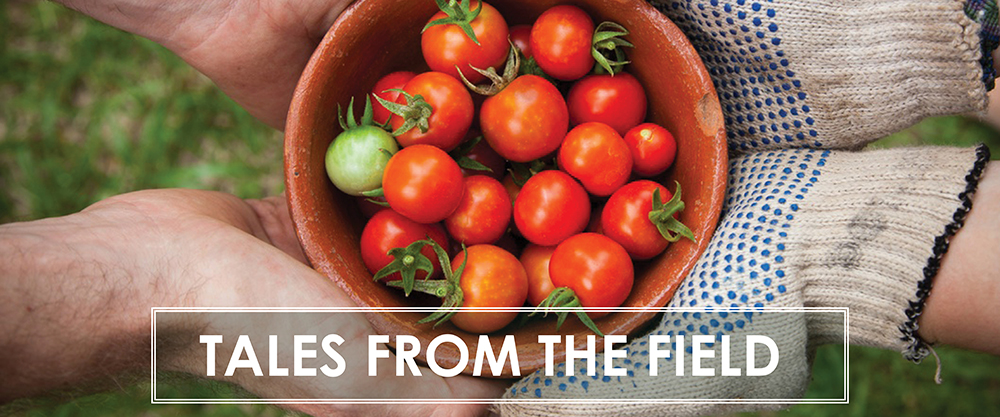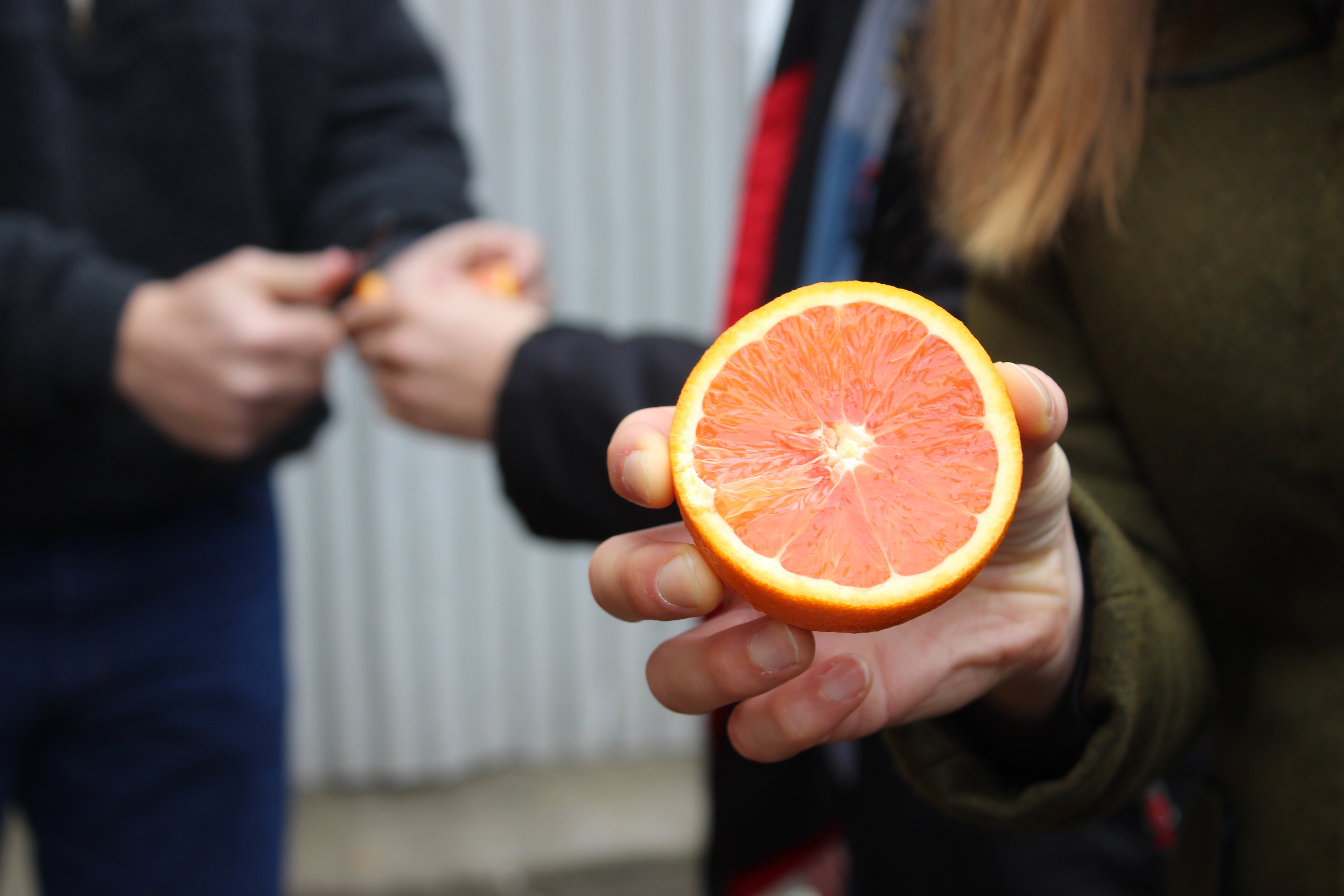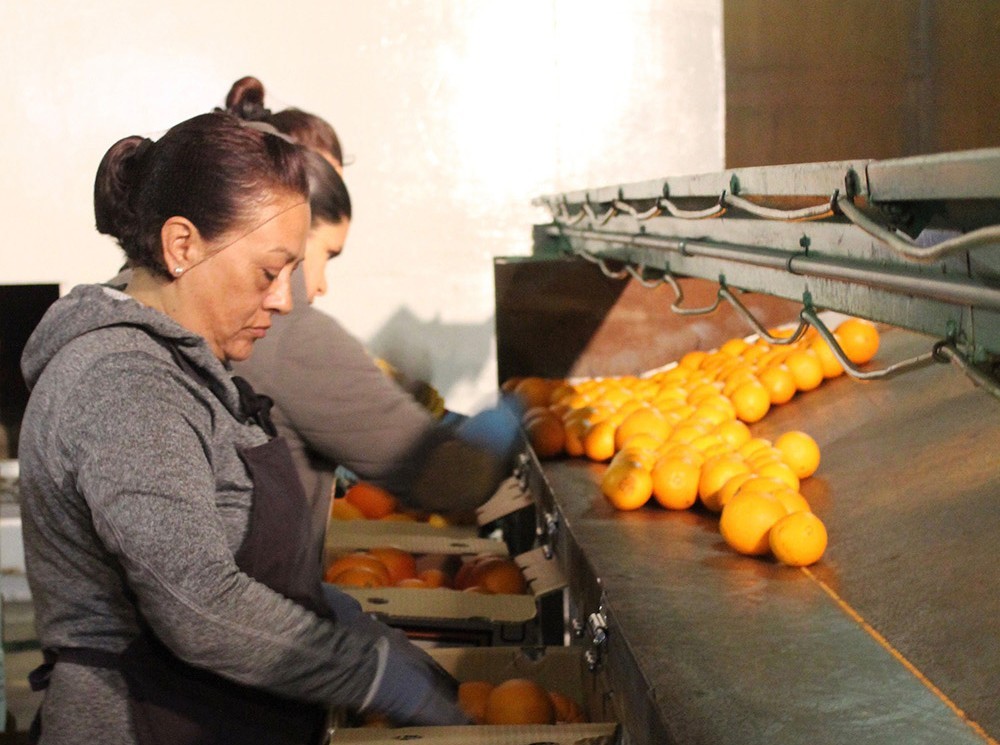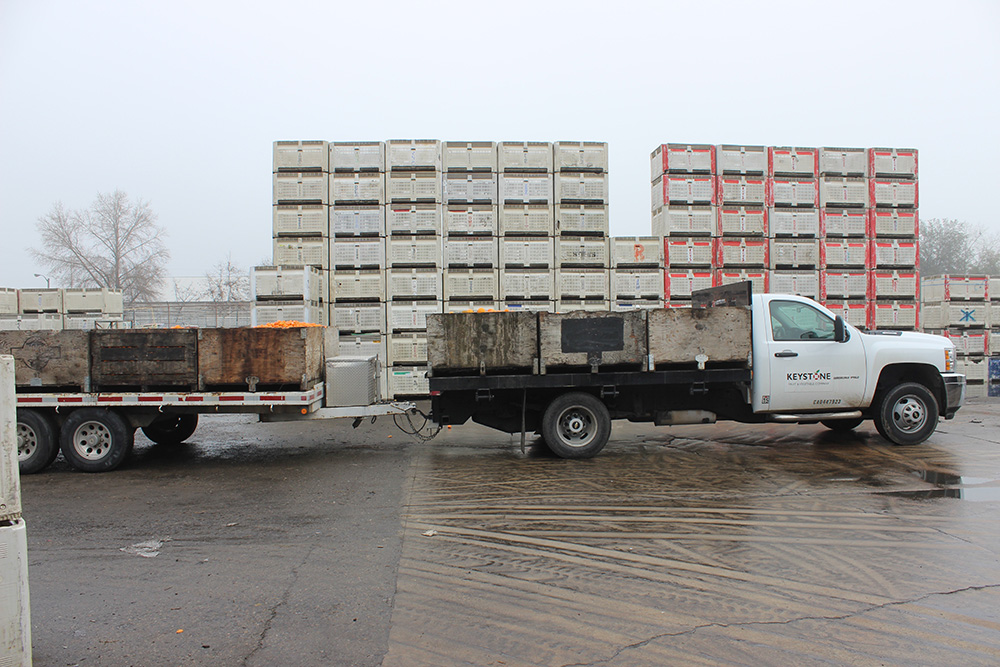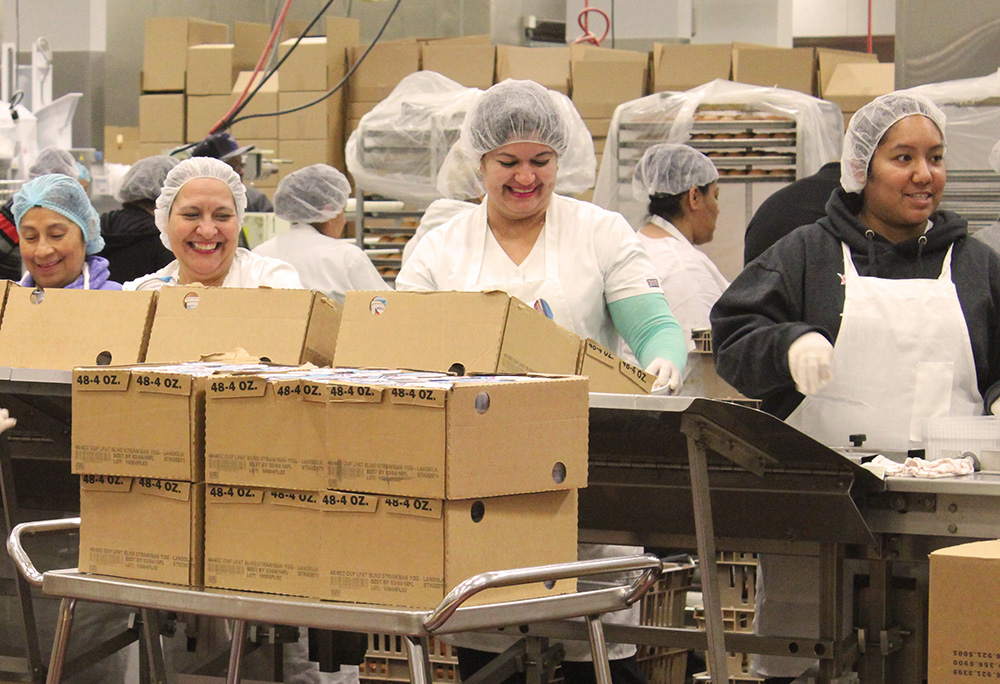Even in the agriculturally rich San Joaquin Valley, food insecurity remains a pressing issue for many residents. Along with the CDFA organized Central Valley Food Access Working Group, the Office of Farm to Fork led a local tour of businesses and institutions working to reduce food insecurity and increase access to fresh fruits and vegetables.
The day commenced in Reedley, California with a tour of Keystone Fruit, a packing shed owned and operated by Randy Asadoor. The company purchases produce seconds (items that are too ripe to sell through traditional markets or are cosmetically defective) from larger facilities and then sorts into multiple streams to sell as cattle feed, processing fruit, or to donate to food banks through the organization Feeding America. Jaclyn Pack, a representative from the Fresno Community Food Bank, a Feeding America member, joined the group to discuss how their organization works as a team with Keystone Fruit to move products quickly.
During the tour, attendees sampled delicious Cara Cara oranges with a small cosmetic flaw that would traditionally be disked back into fields or fed directly to livestock. The experience showed attendees first-hand a working example of food innovation, not only creating a new path for perfectly good produce but also creating jobs, reducing food waste, and providing nutrient rich fruit to people in need.
Attendees also visited the Fresno Unified School District central kitchen, which prepares over 16 million meals a year, including breakfast, lunch, snack, and summer meals. Currently over 80 percent of Fresno Unified students qualify for free or reduced price meals. Attendees toured the facility with Jose Alvarado, the district’s Food Services Director, witnessing thousands of pounds of fresh fruits and vegetables being packed for students and shipped out to 104 sites throughout Fresno. Jose showed attendees a box of fresh carrots, kiwi, and raisins to be served as snack later that day. The tour demonstrated to attendees the larger array of meals served through a school meal program. People typically think of schools as only serving lunch each day but they often provide the vast majority of some children’s daily sustenance with 32,300 breakfast and snacks served daily and over 222,000 summer meals served each summer. School meals are also a great way to introduce fresh fruits and vegetables to students who would not otherwise have access to them.
Showing real life food access solutions is just a part of improving hunger issues. The Office of Farm to Fork is committed to improving food access issues in California. Resources and recommendations born out of the Central Valley Food Access Working Group will be available on the Office of Farm to Fork website. – Farm to Fork Staff
This article is part of a series, chronicling the Office of Farm to Fork Specialty Crop Farm Tours held in Northern, Central, and Southern California. The tours aimed to expose farmers, community stakeholders, educators, and students to local specialty crop farms and their products.
